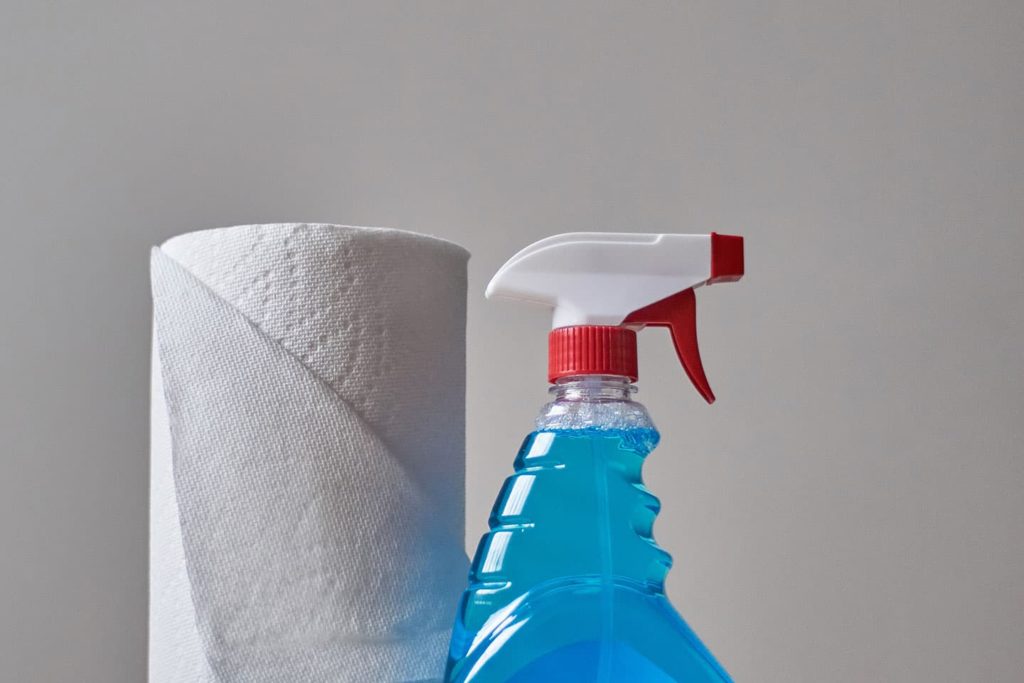In last month’s newsletter, I mentioned some of the benefits of probiotics for children. This month I would like to discuss how probiotics may lessen childhood allergies like asthma, eczema and hay fever.
Emergence of the Hygiene Theory
Over the last 30 years, there has been a two-to-three fold increase in childhood allergies in developed countries. This is significant as compared to the 19th century when hay fever (allergic rhinitis) and asthma were rare.
The rise in allergies like asthma, rhinitis, and eczema has not been seen in underdeveloped countries. This observation has resulted in the “Hygiene Theory”(1).
The theory attributes the rise of allergies to our sanitized lifestyle. In our super-clean world –
vaccinations, anti-bacterial soaps, antibiotics, and airtight doors and windows – we are keeping dirt and disease-causing germs at bay.
Seventy percent of our immune system is in the intestines. Since the intestines serve as our window to our environment, it is important that the intestines monitor our exposure to harmful infections and toxins.
The Hygiene Theory explains the rise of allergies to a change in the immune activity of the gut (2). Our bodies no longer need to fight germs as much as they did in the past. As a result, the immune system has shifted away from fighting infection to developing more allergic tendencies.
The lymphocytes (immune cells) in the intestines are of several types:
- Th1 helps to fight infections due to bacteria and viruses
- Th2 responds to infections caused by parasites.
If an infant is not exposed to infectious bacteria and viruses, then Th1 will be less active, causing a shift the balance of activity in favor of the Th2 lymphocytes, producing antibodies to parasites and also to harmless allergens.
The initial theory has been modified some (3). There is another lymphocyte called a regulatory cell (Treg). This lymphocyte can regulate the activity of both Th1 and Th2 lymphocytes. By adding probiotic bacteria, the (Treg) cells can downregulate the Th2 allergy-mediated immune response.
Probiotics to Regulate Incidence of Eczema
In 2001, a study was done to determine if giving probiotics to mothers prenatally and to infants for the first six months could lessen the frequency of eczema (4). During the first two years of life, eczema occurred 50% less in the group given probiotics compared to the group given placebo.
Subsequent similar studies have had mixed results (5). However, a recent study found that giving a probiotic blend to pregnant women with a family history of allergies was beneficial. The women were given either a placebo or the probiotic starting 4-8 weeks before delivery and then for an additional three months. The infants receiving probiotics had a 55% less involvement with eczema at one year compared to the placebo group (6).
Based on the available studies, probiotics can modify the immune system in infants and lessen the risk of developing eczema and possibly childhood asthma.
There are very few studies that have shown that probiotics can treat existing allergies in children or adults (5). In this regard, it is of interest that a recent study reported probiotics lessened symptoms of nasal allergy in children during the birch pollen season (7).
Much more research is needed to understand how probiotics interact with the intestinal immune cells, but it is really fascinating how our intestinal bacteria play such a major role in our general health.
Take Home Message
For women who are allergy prone, taking a probiotic like EndoMune may help prevent eczema in their offspring. In addition, giving EndoMune Junior to your child during infancy may help to lessen the risk of developing allergies. It is always recommended that you talk to your doctor before taking new medications and supplements.
(1) Strachan DP. Hay fever, hygiene, and household size. BMJ. 1989 Nov 18; 299(6710):1259–1260.
(2)Probiotics in children.Kliger B, Hanaway P, Cohrssen A. Pediatr Clin North Am.2007 Dec;54(6): 949 Kligler B, Hanaway P, Cohrssen A.
(3)Hygiene theory and allergy and asthma prevention. Liu AH.Paediatr Perinat Epidemiol. 2007 Nov;21 Suppl 3:2-7.
(4)Probiotics in primary prevention of atopic disease: a randomized placebo-controlled trial.Kalliomäki M, Salminen S, Arvilommi H, Kero P, Koskinen P, Isolauri E.Lancet. 2001 Apr 7;357(9262):1076-9.
(5)Effect of probiotic mix (Bifidobacterium bifidum, Bifidobacterium lactis, Lactobacillus acidophilus) in the primary prevention of eczema: a double-blind, randomized, placebo-controlled trial.Kim JY, Kwon JH, Ahn SH, Lee SI, Han YS, Choi YO, Lee SY, Ahn KM, Ji GE.Pediatr Allergy Immunol. 2009 Oct 14.
(6)Probiotics and prebiotics in atopic dermatitis: a review of the theoretical background and clinical evidence.van der Aa LB, Heymans HS, van Aalderen WM, Sprikkelman ABPediatr Allergy Immunol. 2009 Jul 2.
(7)Specific probiotics alleviate allergic rhinitis during the birch pollen season. Ouwehand AC, Nermes M, Collado MC, Rautonen N, Salminen S, Isolauri E. World J Gastroenterol. 2009 Jul 14;15(26):3261-8.

